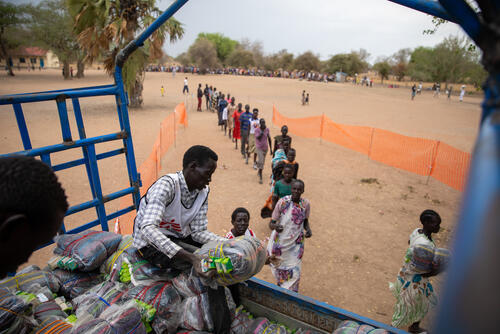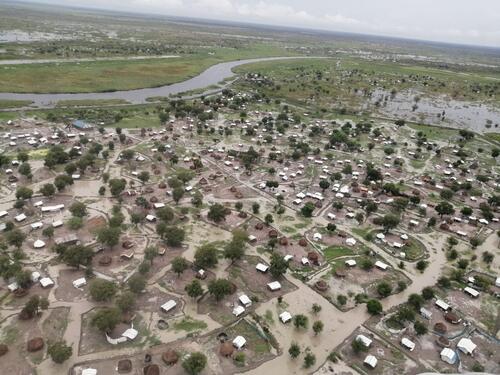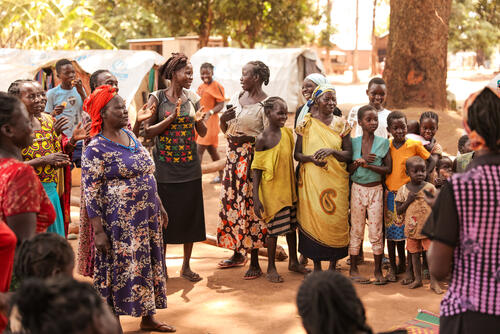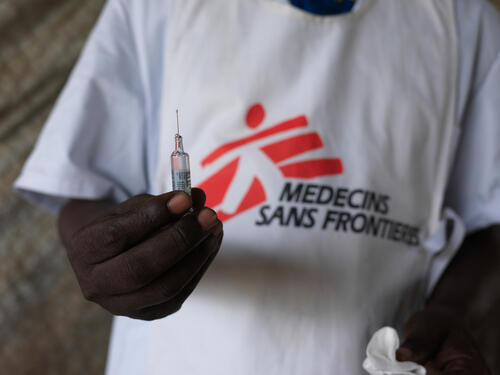- Tens of thousands of people have fled to Twic County, in Warrap State, South Sudan where they have settled in displacement sites which lack basic necessities;
- The needs of these people will continue to grow as the rainy season approaches;
- MSF calls on the humanitarian community in South Sudan to increase their support and meet the needs of the displaced.
Juba – After fleeing their homes more than two months ago, tens of thousands of people are still left without basic necessities in Twic County, South Sudan. Despite repeated calls by Médecins Sans Frontières (MSF), the humanitarian community in South Sudan has failed to scale up assistance to people who have largely been left without food, shelter and sanitation.
Following violent intercommunal clashes in early February in and around Agok, Abyei Special Administrative Area, residents fled north to Abyei town and south into Twic County in South Sudan’s Warrap State.
In the six locations in Twic County where MSF is currently responding, there are around 33,000 displaced people, the majority of whom are women and young children. Most people have settled in the open, and many still lack basic essentials like shelter, food and clean water.
“The situation in the displacement camps is terrible,” says Susana Borges, MSF head of mission in South Sudan. “People are living in makeshift shelters made of sticks and cloth.”
“Parents are literally pulling leaves from the trees and cooking them to feed their children because of lack of food,” says Borges. “We are doing our best to respond but more assistance is needed from other organisations to meet the scale of this crisis.”
We are doing our best to respond but more assistance is needed from other organisations to meet the scale of this crisis.Susana Borges, MSF head of mission in South Sudan
Despite the critical needs, humanitarian organisations have failed to respond quickly and adequately, resulting in dire living conditions in the camps.
For the past two months, MSF has provided 374 metric tons of food, has constructed 135 latrines, and has distributed relief items such as blankets, mosquito nets, jerry cans and soap to some ten thousand families. Teams are today providing an average of 14 litres of clean water per person per day.
MSF teams have been running mobile clinics in three sites where displaced people are sheltering. The health conditions of patients presenting at our mobile clinics are closely related the poor living conditions and limited access to food. The lack of shelter, latrines and mosquito nets put people at risk of diseases such as malaria and cholera.
With the rainy season about to begin, the health situation is likely to deteriorate further if the humanitarian response is not immediately scaled up.
“The rain is almost here, and people have small children with them. If the rain falls now, they have no houses to go to,” says Atem, a father of two young children living in a displacement camp after fleeing his home in Agok. “People are really suffering. They need support for shelter; they need support for food.”
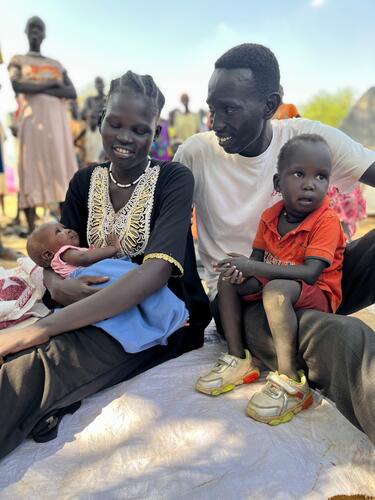
It seems unlikely that people will return home any time soon, fearing further violence.
“I have seen people that have been shot – people who are innocent – people like me. They [attackers] looted my house and they looted my shop,” says Atem. “How can I think of going back again? It is better for me to suffer here.”
People displaced in Twic County will need ongoing support throughout the upcoming rainy season in order to ensure decent living conditions and the provision of adequate food and drinking water. Sustained humanitarian action from the humanitarian community in South Sudan is needed to provide for people who are extremely vulnerable after months of neglect.
MSF has been working in Agok since 2006 and established a hospital there in 2008, providing a wide range of health services for some 140,000 people. Following the initial violence that erupted on 10th February 2022, MSF suspended services at the hospital and instead started providing medical and humanitarian assistance in Twic County and in Abyei town.



